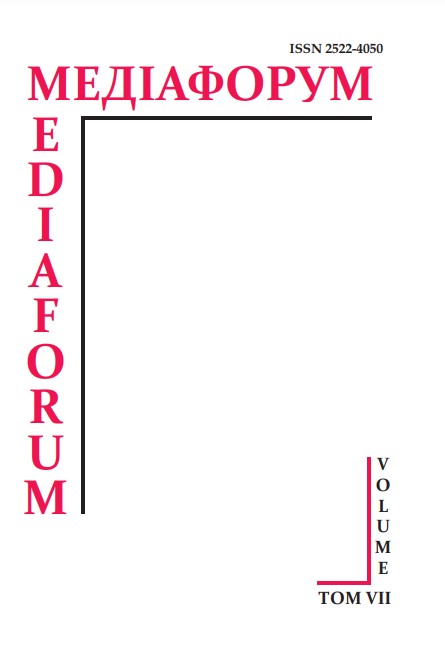Post-Bipolar Structure of the International System
DOI:
https://doi.org/10.31861/mediaforum.2019.7.155-174Keywords:
US foreign policy, bipolarity, monopolarity, hegemony, world order, international systemAbstract
The random and indeterminate nature of the current unipolar world is marked by a condition of increasing entropy. This claim is maintained by two assumptions. First, relative capability advantages under unipolarity do not translate as easily as they once did into power and influence over others. Second, systemic constraint is a property that limits actors’ freedom of action by imposing costs and benefits on certain kinds of actions. Unlike past multipolar and bipolar systems, the current unipolar system exerts only weak, systemic constraints on the unipolar power and all other actors as well. Thus, polarity has become a largely meaningless concept. Today, system process rather than structure best explains international politics, and this process is one of entropy. Finally, the author suggests two pathways from unipolarity to a more balanced international system: one is fairly consistent with standard balance-of-power realism; the other restores equilibrium by means of entropy. This current unipolar moment may become transcendent when the most powerful international actor, - the United States of America, - would choose to adapt to and to harness the social power of numerous nonstate international actors that are due take over the leading role in the future world’s politics.
Downloads
References
Chase-Dunn Ch., Hall Th. (1997) Rise and Demise: Comparing World-Systems. Boulder: Westview Press.
Deutsch, K. (1988) The Analysis of International Relations. Englewood Cliffs, NJ: Prentice Hall.
Fukuyama F. (1992) The End of History and the Last Man. New York: Free Press.
Geller D., Singer D. (1998) Nations at War : A Scientific Study of International Conflict. Cambridge NY: Cambridge University Press.
Gilpin, R. (1996) ‘Economic Evolution of National Systems’, International Studies Quarterly 3: 410-435.
Hoffmann S.(1998) World Disorders: Troubled Peace in the Post-Cold War Era. New York: Rowman & Littlefield.
Holsti K. (1991) Peace and War: Armed Conflict and International Order 1648-1989. Cambridge: Cambridge University Press.
Jervis R. (2017) Perception and Misperception in International Politics. Princeton, New Jersey Princeton University Press.
Kaplan M. (1975) System and Process in International Politics. Huntington, NY, R. E. Krieger Publishing Co.
Kenneth W. (2000) ‘Globalization and American Power’, The National Interest 59: 46-56.
Knowledge, Power, and International Policy Coordination (1997), Peter M. Haas (ed.) Columbia, S.C. : University of South Carolina Press.
Krauthammer Ch. (1991) ‘The Unipolar Moment’, Foreign Affairs 1: 23-33.
Lasswell H. (2005) The Future of Political Science. New Brunswick, NJ: Aldine Transaction.
Modelski G. (2005) ‘Long-Term Trends in World Politics’, Journal of World-System Research 2: 195-208.
Nye J. (1992) ‘What New World Order?’ Foreign Affairs 2: 85-97.
Olson M. (1982) The Rise and Decline of Nations: Economic Growth, Stagflation, and Social Rigidity. New Heaven: Yale University Press.
Rosecrance R. (1977) Action and Reaction in World Politics: International Systems in Perspective. Westport, Connecticut: Greenwood Press.
Rosenau J. (1990) Turbulence in World Politics: A Theory of Change and Continuity. Princeton: Princeton University Press.
Starr H. (1991) ‘The Institutional Maintenance of Twenty-First Century World Order’, in Charles W. Kegley and Eugene Wittkopf (ed.) The Global Agenda: Issues and Perspectives, New York: McGraw-Hill.
Waltz K. (1979) Theory of International Politics. Boston: McGraw-Hill.














